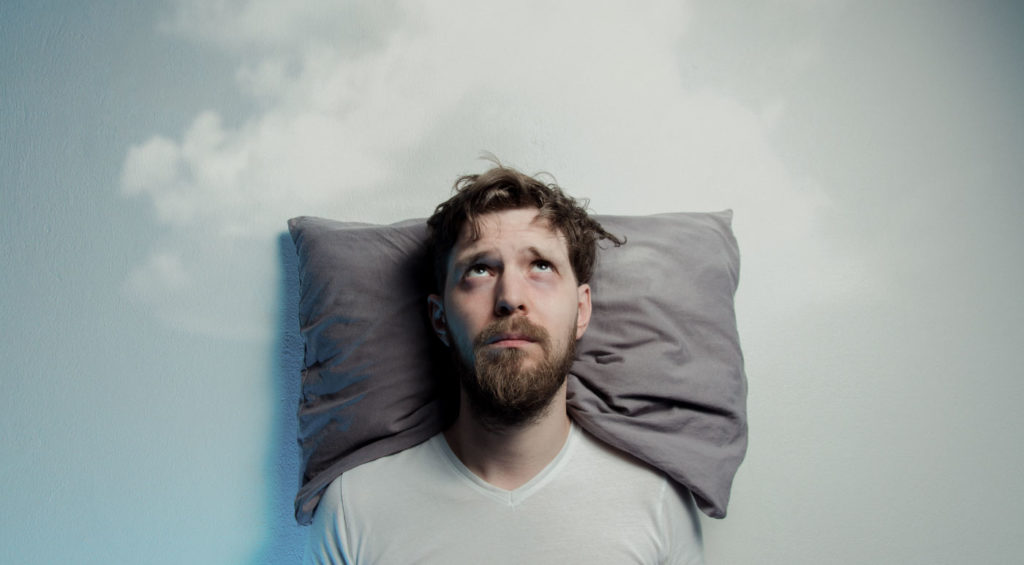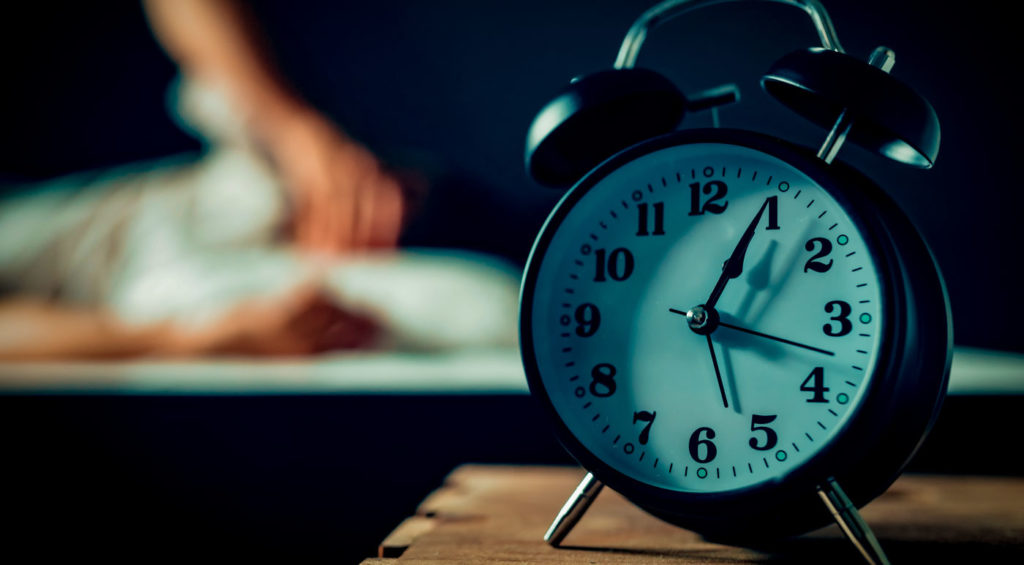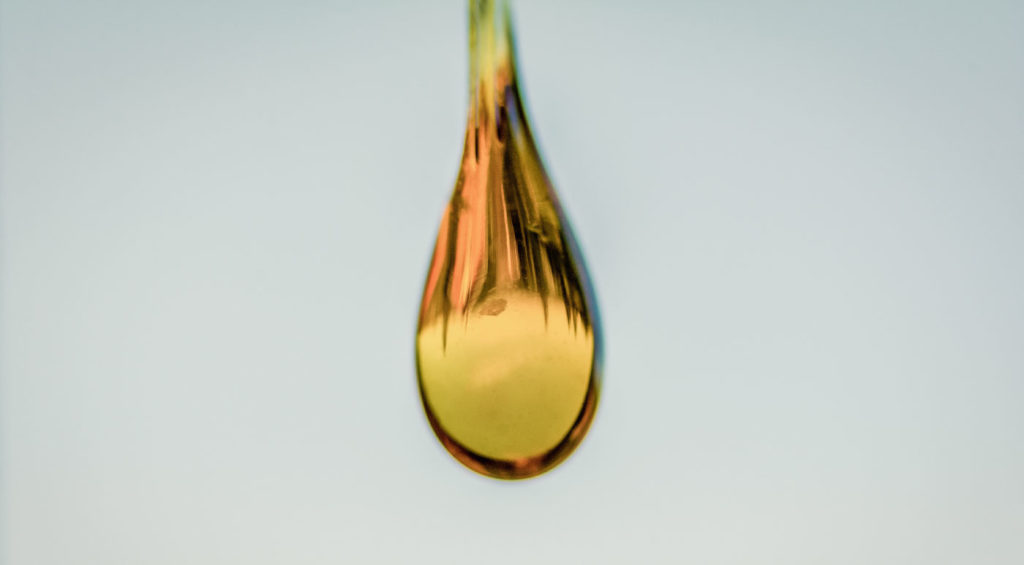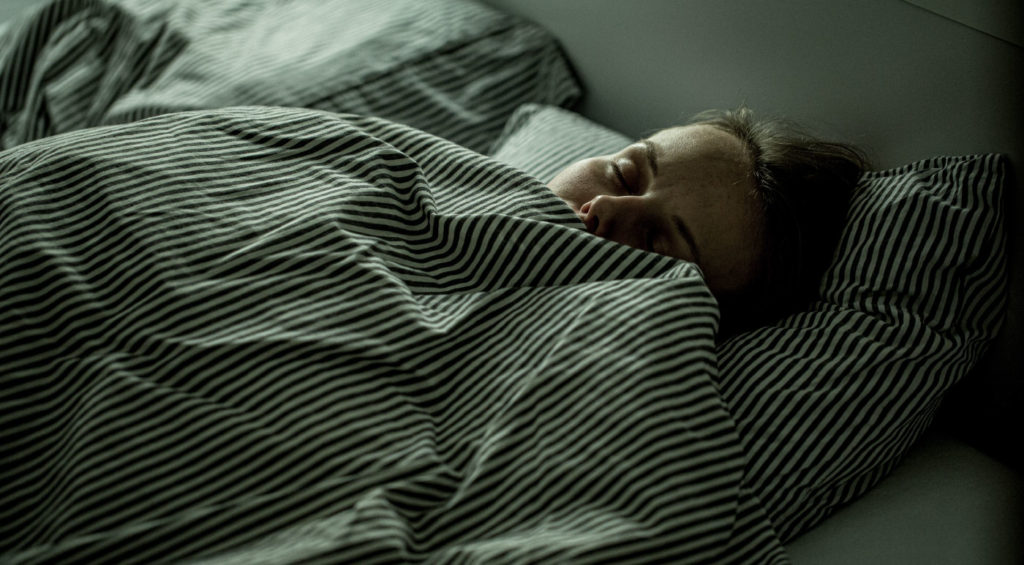
Like with most questions about CBD oil these days, the question of whether you can use CBD for insomnia gets the basic answer of “The results look positive, but we need more studies.” We may, however, have some answers for you, so keep reading.
Now, you won’t get an argument from me about whether or not we need more and better research—we do! But sometimes looking at the details of a clinical study makes you miss the big picture. It’s the same old story of missing the forest for the trees.
Taken as a whole, current research suggests that CBD can increase the total time spent sleeping and decrease the number of times an individual wakes up during the night. For some people, higher doses of CBD may be needed to see those benefits. But overall, the consensus is growing that CBD can help you sleep. So if you want to try using CBD for your insomnia, go right ahead. You may be wonderfully surprised with the results!
Table of Contents
- Sleep, Endocannabinoids, and How CBD Works for Insomnia
- Sleep Basics
- Sleep Disorders
- Studies on CBD and Better Sleep
- Insomnia, Anxiety and Depression: Links to CBD
- Is Using CBD for Insomnia and Sleep Issues Effective?
Sleep, Endocannabinoids, and How CBD Works for Insomnia
The endocannabinoid system is an evolutionarily conserved system that plays a part in regulating several systems in the body—systems that control energy intake and storage, sleep patterns, mood, appetite, sleep, pain, reproduction, and the immune system.
Humans and other mammals use the endocannabinoid system; and some plants, like members of the cannabis family, produce cannabinoids. These compounds help the plants in reproducing, as well as protecting the plant from insects, cold, and dehydration. Probably because nature tends to keep biological systems that work, humans and other animals share receptors and binding sites for different substances—and we have found that cannabinoids (and lots of other plant-produced substances) derived from cannabis plants have beneficial effects on humans.
Sleep follows what is known as a “circadian rhythm”—a 24-hour cycle that is controlled via natural substances (including endocannabinoids) produced by the body as well as by exterior signals such as sunlight or decreases in temperature. One of the major endocannabinoids, 2-arachidonoylglycerol (2-AG) follows a circadian rhythm and is imbalanced in several different sleep disorders.The imbalance of 2-AG during sleep disruption and the connection between 2-AG and hunger may be part of the reason why obesity is closely associated with sleep disorders.
The endocannabinoid system is also involved in anxiety. Cannabinoids like CBD may work indirectly to improve sleep by reducing anxiety—and the case for CBD for reducing anxiety is quite strong.
Sleep Basics

Sleep is never as simple as we might want. Normal sleep cycles through four stages: three stages of non-rapid eye movement (non-REM) sleep and one stage of REM sleep. Normally, a sleeping person goes through some waking and semi-waking periods before and after one or more stages. Sleep begins at Stage 1 and progresses through Stages 2, 3, and finally REM sleep. Then the cycle repeats, with REM periods getting longer throughout the night (or whenever you sleep, though daytime sleep is a bit different).
Stage 1 is the lightest non-REM (NREM) sleep. Stages 2 and 3 get progressively deeper. Dreaming occurs during REM sleep. The first full sleep cycle usually takes about 90 minutes, with later cycles averaging about 110 minutes each. Most people (at least those getting a full, healthy night of sleep) go through four to five cycles every night.
The deepest sleep—and the one that is most needed for rest—is Stage 3 NREM sleep.
Sleep Disorders
Once you know a bit about sleep cycles, it is probably less surprising that there are almost 100 described sleep disorders! The most common include:
- Insomnia: This can include trouble falling asleep or trouble staying asleep.
- Sleep apnea: More of a breathing disorder that occurs while you sleep, this disorder causes you to stop breathing for 10 seconds or more at a time while you’re asleep.
- Restless Leg Syndrome (RLS): A tingling or prickly sensation along the legs. There is often a strong urge to move the legs to get rid of the sensation, and the legs often jerk or kick during sleep.
- Circadian rhythm disorders: The daily rhythm of sleep gets disrupted. This often happens with people who work a night shift or with jet lag.
CBD can have an effect on each of these disorders, but we are just at the start of the research journey and there is lots to learn.
Studies on CBD and Better Sleep

A recent review of the literature on cannabinoids and sleep said that “CBD may hold promise for REM sleep behavior disorder and excessive daytime sleepiness…” In other words, CBD can help you sleep better. REM sleep behavior disorder is a disorder where you move around during REM sleep (normally, there is no movement) and physically act out dreams. These dreams are sometimes unpleasant. A person with REM sleep disorder may also make sounds during sleep and their movements can be sudden and strong.
One study indicated that CBD users tended to rate their sleep quality as good, as opposed to non-CBD users who commonly rated their sleep quality as poor. A recent online survey seemed to indicate that THC-containing products were more effective than pure CBD in improving sleep quality.
Another study used a mobile app to record responses to the use of whole cannabis in self-reporting cases of insomnia, and it found that “Cannabidiol (CBD) was associated with greater statistically significant symptom relief than tetrahydrocannabinol (THC)…” Relief was more commonly derived from vaporizers, as compared to joints and with a percentage of CBD ranging at around 5-6%.
Looking at healthy volunteers, a study out of Brazil concluded that CBD did not significantly interfere with a normal sleep cycle.
An animal study (conducted on rats) showed that CBD seemed to increase the total time spent in sleep, as well as the amount of time it took to fall asleep during the day.
Overall, there have been very few studies on the direct effect of CBD on sleep. Anecdotally, however, there is much more to say—this may be because many people with sleep issues also have problems with anxiety, and the research showing positive effects of CBD on anxiety is quite good. Other anecdotal information comes from an online survey by…wait for it… Consumer Reports. Most people using CBD for insomnia and to help them sleep report that it works!
Conclusion: CBD can help you sleep better.
Insomnia, Anxiety and Depression: Links to CBD

According to the Anxiety and Depression Association of America (ADAA), “Stress and anxiety may cause sleeping problems or make existing problems worse. And having an anxiety disorder exacerbates the problem.” Also, it’s a bit of a “chicken versus egg” problem—sleep issues can cause anxiety, and anxiety can cause sleep issues. Sleep patterns are disrupted in nearly all mental health disorders, and chronic insomnia puts you at higher risk for both anxiety and depression—it’s all connected! It is possible that the benefits of using CBD for insomnia and other sleep issues may be due to its actions as an anti-anxiety agent.
Is Using CBD for Insomnia and Sleep Issues Effective?
Overall, the outlook for using CBD for insomnia and other sleep problems is certainly promising. I’ve personally recommended it for that purpose, and in my experience, it seems to work very well.
More research definitely needs to be done, but this is true for all cannabinoids. While some results have been called “contradictory,” that really isn’t surprising—after all, the antihistamine Bendryl can put some people to sleep—for others, it may get them wired. This is known as a paradoxical drug effect and is more common than people realize.
We should not be surprised that CBD has different effects on different people—we are pretty complex creatures biochemically, and what works for one person may not have the same effects on another. So, the best advice is to try CBD for insomnia, starting at low doses. See what happens and, if you need to, increase the dose slowly, leaving at least a week between to figure out what works—or doesn’t work—for you. CBD has few side effects (the most frequently mentioned are nausea and fatigue), and if they are experienced, they typically decrease with time.
Overall, studies indicate that yes, CBD can help you sleep better.
Additional Resources on CBD and Sleep
- How Does CBD Help Improve Sleep & Prevent Insomnia?
- How Does CBD Oil Help Improve Sleep?
- The Best CBD for Sleep and Insomnia
